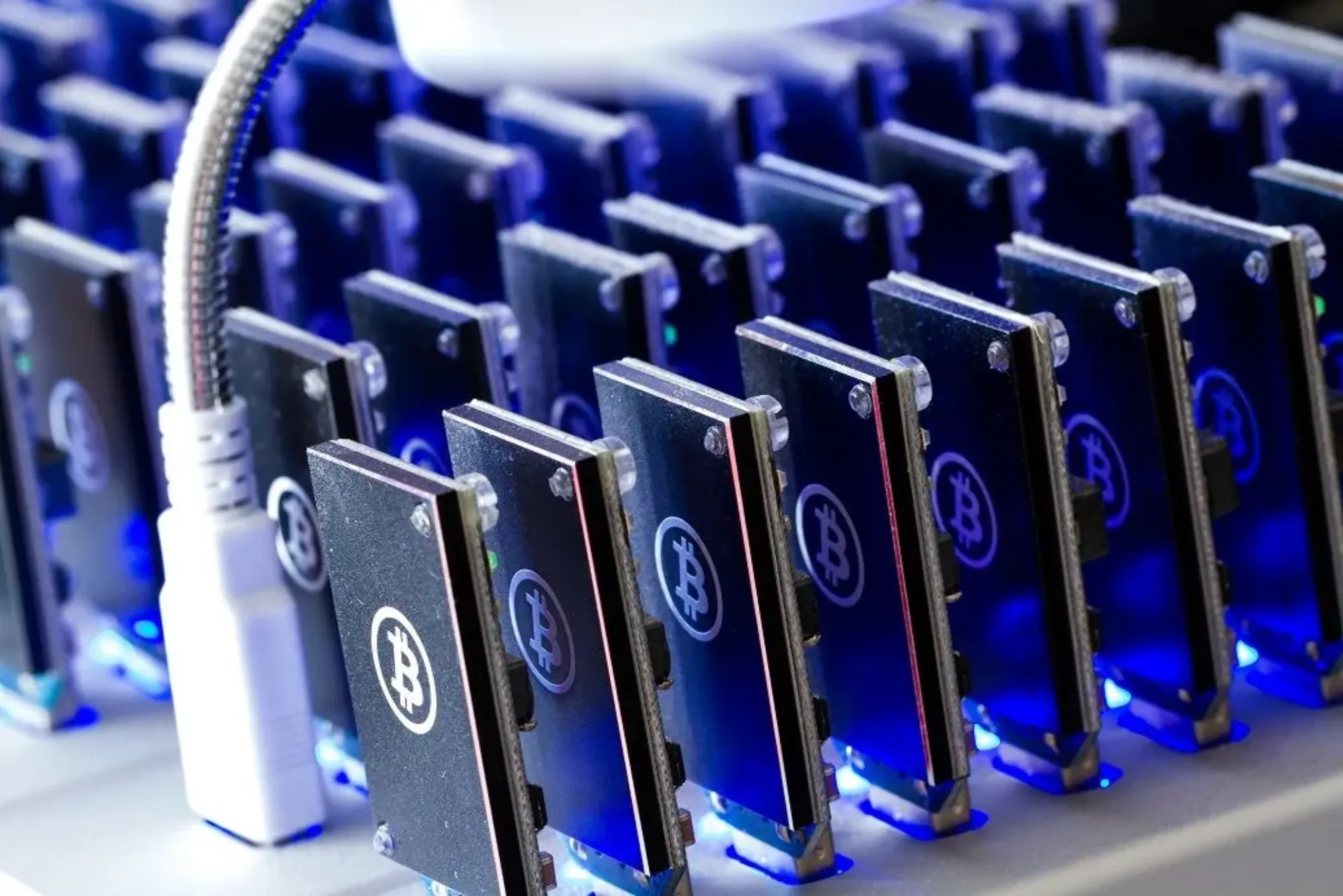Cryptocurrency mining has become a popular venture for tech enthusiasts and investors alike. The idea of using your PC to generate digital currencies such as Bitcoin, Ethereum, or other altcoins is intriguing. But mining isn’t as simple as running a program and collecting profits—it involves hardware, software, and energy costs. This article will guide you through the process of mining cryptocurrency on a PC, discussing everything from choosing the right hardware to understanding the risks and rewards.
What is Cryptocurrency Mining?
Cryptocurrency mining is the process of validating transactions on a blockchain network by solving complex mathematical problems. When you successfully mine a block, you’re rewarded with cryptocurrency coins. The decentralized nature of cryptocurrencies means that no central authority, such as a bank, governs them, and miners help maintain the network by verifying transactions.
Mining cryptocurrencies on a PC typically involves using the computer’s processing power to perform these mathematical calculations. However, mining on a personal computer has its limitations, as many cryptocurrencies have become increasingly difficult to mine due to rising competition and the complexity of the mining algorithms.
Types of Mining
There are several methods of mining cryptocurrency, but on a PC, you can typically engage in the following types:
CPU Mining: This is the most basic form of mining, where the central processing unit (CPU) of your computer is used to solve complex equations. However, CPU mining has become inefficient for most cryptocurrencies due to the high level of competition and the power needed for calculations.
GPU Mining: Graphics Processing Units (GPUs) are significantly more efficient for mining than CPUs. A strong GPU is capable of handling the repetitive calculations required by mining algorithms, making it a preferred option for most miners.
ASIC Mining: While ASIC (Application-Specific Integrated Circuit) mining rigs are not typically used with PCs, it’s worth mentioning that these machines are highly specialized for mining specific cryptocurrencies. They are far more efficient than CPUs and GPUs but also more expensive and power-hungry.
Cloud Mining: Cloud mining involves renting mining hardware hosted by third parties. You do not need to own a mining rig or PC. Instead, you pay a service provider to mine cryptocurrency for you. This method avoids the energy costs and technical setup involved in traditional mining.
Step-by-Step Guide to Mining Cryptocurrency on a PC

Choose the Right Cryptocurrency to Mine
Before you start mining, you’ll need to choose a cryptocurrency that’s suitable for PC mining. Not all cryptocurrencies are viable for mining on a regular computer, as some require specialized hardware or are too competitive. Some of the cryptocurrencies that are still feasible for PC mining include:
Monero (XMR): Monero is a privacy-focused cryptocurrency and one of the most popular coins for CPU mining.
Ravencoin (RVN): Ravencoin is a relatively new coin that can still be mined profitably with a good GPU.
Vertcoin (VTC): Vertcoin is another altcoin designed to resist ASIC mining, making it more accessible to GPU miners.
Choose Your Mining Hardware
While you can technically mine using your CPU, it’s generally more profitable to use a GPU. Here are the basic hardware requirements:
CPU: For CPU mining, you’ll need a multi-core processor. However, CPU mining is often inefficient compared to GPU mining.
GPU: A high-end graphics card is essential for GPU mining. NVIDIA and AMD are the most popular GPU brands for mining, with models like the NVIDIA GeForce RTX 3080 or AMD Radeon RX 6800 XT being good choices.
RAM: A minimum of 8 GB of RAM is recommended for mining.
Cooling System: Mining puts a lot of strain on your hardware, causing it to overheat. Ensure your PC has a reliable cooling system, with additional fans or even liquid cooling for high-end setups.
Power Supply: Mining is power-intensive, so make sure your PC has a power supply unit (PSU) that can handle the load. A 750W PSU should suffice for most GPU mining setups.
Install Mining Software
After setting up your hardware, you need to install the mining software. Here are some popular mining software options for PC mining:
XMRig: For mining Monero or other CPU-minable coins, XMRig is one of the best options.
T-Rex Miner: A popular GPU miner for NVIDIA graphics cards.
NBMiner: Works for both NVIDIA and AMD GPUs and supports mining of Ethereum, Ravencoin, and other cryptocurrencies.
Once installed, you’ll need to configure the software according to the cryptocurrency you’re mining. This typically involves setting up your wallet address, adjusting settings to optimize mining efficiency, and connecting to a mining pool.
Join a Mining Pool
Mining solo is possible, but the chances of successfully mining a block and receiving rewards are very low due to the competition. Mining pools are a group of miners who combine their computational power to increase their chances of solving a block and earning rewards. Some popular mining pools include:
Slush Pool: One of the oldest mining pools, supporting Bitcoin and Zcash.
Nanopool: Supports Ethereum, Ethereum Classic, Zcash, and other altcoins.
MinerGate: User-friendly pool supporting multiple coins, including Monero and Bitcoin.
In a mining pool, you get a share of the reward proportional to the computational power you contribute to the pool.
Set Up a Cryptocurrency Wallet
You’ll need a wallet to store the cryptocurrency you earn from mining. Cryptocurrency wallets come in various forms, including:
Software Wallets: These are applications that you can install on your computer or smartphone. Examples include Electrum and Exodus.
Hardware Wallets: A more secure option, hardware wallets are physical devices, such as the Ledger Nano S or Trezor, that store your coins offline.
After setting up a wallet, you’ll use your wallet’s address to receive the coins you mine.
Start Mining
Once you’ve set up your hardware, mining software, and wallet, you’re ready to start mining. Open your mining software, join your pool, and begin the process. Mining can take a significant amount of time before you see any substantial earnings, depending on your hardware and the cryptocurrency you are mining.
Risks and Considerations
Mining cryptocurrency on a PC is not without its risks and challenges. Some of the key factors to consider are:
Electricity Costs: Mining consumes a large amount of electricity, which can lead to high power bills. Make sure to calculate whether the energy cost outweighs the potential rewards.
Hardware Wear and Tear: Mining puts considerable stress on your hardware, especially the GPU. Prolonged mining sessions can lead to reduced hardware lifespan.
Market Volatility: The price of cryptocurrencies is highly volatile, which means that what is profitable today may not be tomorrow. Keep this in mind when investing in mining equipment.
Difficulty Increase: The difficulty of mining increases over time as more miners join the network, meaning you’ll need more computational power to earn the same amount of cryptocurrency.
Is Mining Cryptocurrency on a PC Profitable?

The profitability of mining depends on several factors, including the cryptocurrency you are mining, the hardware you use, and the cost of electricity in your area. As of now, GPU mining is generally more profitable than CPU mining, but it requires a significant initial investment in hardware.
To assess profitability, you can use online calculators like WhatToMine, which allow you to input your hardware, power consumption, and electricity cost to estimate potential profits.
Mining cryptocurrency on a PC can be a fun and potentially profitable venture, but it requires careful planning and investment. By choosing the right cryptocurrency, hardware, and software, and by joining a mining pool, you can improve your chances of earning rewards. However, it’s important to keep in mind the risks, including hardware wear and electricity costs, before diving in.







